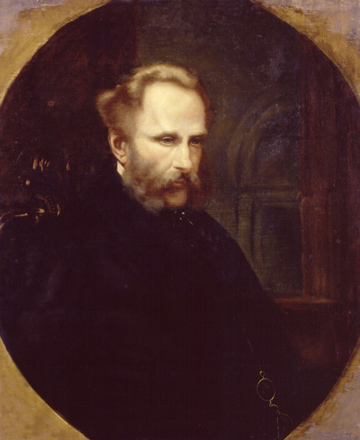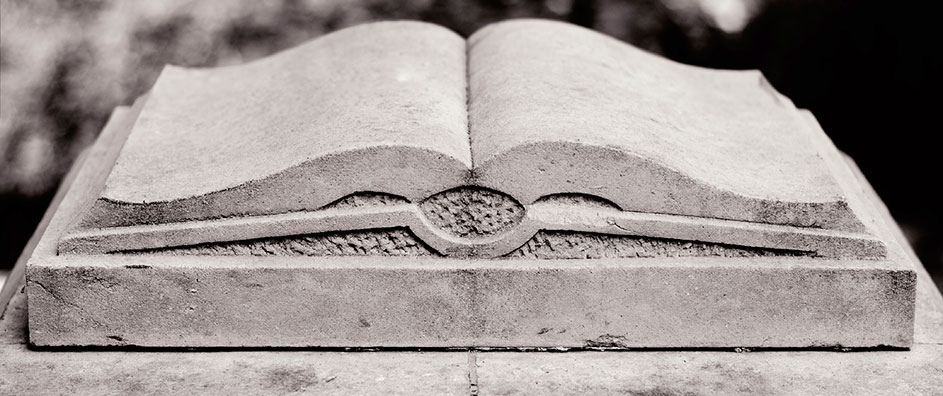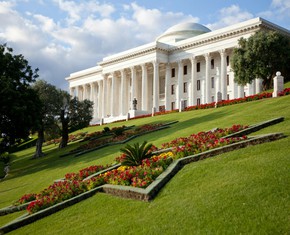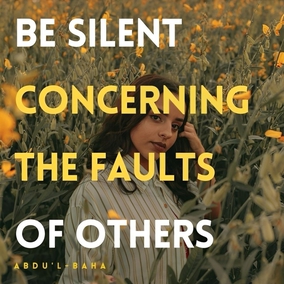The views expressed in our content reflect individual perspectives and do not represent the authoritative views of the Baha'i Faith.
The British historian Alexander William Kinglake said every place of worship should have three words inscribed over its entryway: “Important if True.”

Alexander William Kinglake
Seekers who think about, explore and try to recognize religious truth usually have to answer that key question by asking themselves: how do I determine the truth of these teachings?
If you’re one of those questing, questioning seekers of truth, consider yourself fortunate that you’re alive now, rather than at just about any other time in human history.
In historical terms, this development has come about very recently—probably over just the last couple of hundred years. In the past, the vast majority of the world’s population relied on tradition or some outside authority to determine their beliefs. Very few people questioned their ancestral heritage and rituals. Widespread illiteracy, the grip of feudalism, fearsome punishments for “deviance” and the enormous power of the established clergy kept almost everyone from seeking a different set of truths than the ones their parents and their culture offered them.
So for thousands of years, people inherited their religious beliefs, like they did their birthplace, or their language, or their family name and class and social status. Born into a religious tradition, you automatically followed it without questioning it. If your father and mother were Hindu, so were you. If your parents came from Jewish or Christian or Muslim backgrounds, you automatically adopted their belief system and its world view and saw it as your duty to make sure your children adopted it, too. If the King changed religions—usually for reasons of power or politics—so did everyone in the kingdom. Few people questioned their inherited beliefs, and if they did, they did so privately and quietly. Those who tried to take their own path and be open about it were punished, ostracized and even burned at the stake as heretics.
Today–in many if not most cultures around the world–that has all changed.
A new global era has begun. We could call it the Age of the Seeker, because it encourages everyone to examine their own interior landscape and independently figure out what they believe, without being exclusively bound by background or law or heritage. This healthy new spirit of open inquiry allows individuals from many of the world’s cultures to reevaluate and reconsider. All around the world, spiritual seekers feel more and more willing and able to question, to call out and to re-think their innermost philosophical, ethical and spiritual assumptions. People from every culture and tradition and belief system now look deeply into the meaning of their religious roots and apply Kinglake’s test, asking themselves: is this true? Do my parent’s or my culture’s traditional beliefs stand the test of my reasoning, my independent investigation, my own inner truth?
The Baha’i teachings fully support and honor this development. In fact, the very first Baha’i principle—the independent investigation of the truth—has encouraged seekers to find their own path for a very long time, starting in the middle of the 19th century. When Baha’u’llah founded the Baha’i Faith, he asked humanity to “look into all things with a searching eye:”
True loss is for him whose days have been spent in utter ignorance of his self. The essence of all that We have revealed for thee is Justice, is for man to free himself from idle fancy and imitation, discern with the eye of oneness His glorious handiwork, and look into all things with a searching eye. – Baha’u’llah, Tablets of Baha’u’llah, p. 156.
The Baha’i teachings overflow with variations of this encouraging, freeing, empowering advice:
Let us examine the facts as they are, investigate the truth and reality in order to arrive at a true opinion and conclusion. For a completely fair opinion upon this question we must lay aside all we have and investigate independently. – Abdu’l-Baha, Foundations of World Unity, p. 96.
…man must endeavor in all things to investigate the fundamental reality. If he does not independently investigate, he has failed to utilize the talent God has bestowed upon him. …man must independently investigate reality, for the disagreements and dissensions which afflict and affect humanity primarily proceed from imitations of ancestral beliefs and adherences to hereditary forms of worship. – Abdu’l-Baha, The Promulgation of Universal Peace, p. 314.
Furthermore, know ye that God has created in man the power of reason whereby man is enabled to investigate reality. God has not intended man to blindly imitate his fathers and ancestors. He has endowed him with mind or the faculty of reasoning by the exercise of which he is to investigate and discover the truth; and that which he finds real and true, he must accept. He must not be an imitator or blind follower of any soul. He must not rely implicitly upon the opinion of any man without investigation; nay, each soul must seek intelligently and independently, arriving at a real conclusion and bound only by that reality. The greatest cause of bereavement and disheartening in the world of humanity is ignorance based upon blind imitation. – Abdu’l-Baha, Foundations of World Unity, pp. 73-74.
Today, finally, we each have the tools, and many of us have the freedom, to conduct this kind of wide-ranging, open inquiry into the truth. Literate, educated and able to readily access the scriptures and writings of all Faiths, we can now investigate our own beliefs and the beliefs of others with a searching eye. The teachings and scriptures of the world’s great Faiths have become available to all, and we can study them, evaluate them and figure out for ourselves which ones to accept and reject.
So how do we determine what’s true and what’s false? What criteria can we use to make that decision? In this short series of articles, we’ll take a look at the four ways of knowing, and how to use them to go about conducting a fearless and truly independent search for the spiritual verities of life.
















Comments
Sign in or create an account
Continue with Googleor